03 Ene When Products Communicate
Every morning, noon and night for well over a month, 20 Danish test families adhered to a diet of the Helpful Food of the Future. Contrary to most RFID projects, focused on optimizing the value chain with respect to logistics, this project is aimed at exploring the potential of integrating RFID and the Internet for purposes of direct communication between producer and consumer. We had a chat with project manager, producer, user and consumer about the perspectives which were gained of the project.
The RFID technology is probably best known from logistics where the electronic bar code has primarily been deployed in the campaign against empty shelves in the shops. But why confine RFID to logistic usage when it might as well contain information directed against the consumer? Also speculating along these lines, the Danish slaughterhouse Danish Crown decided to actively join the project. Project Manager at Danish Crown, Søren Tinggaard explains that, typically, the retail trade has served as producers' mouthpiece in the communication with consumers. He says:
– With RFID we're no longer as dependent on the retailers; we are in a position to communicate directly with the consumer and thus enabled to target our communication at the consumers.
He further explains that participation in the project is an obvious possibility to gain experience with respect to the RFID technology and to learn about the information of value to consumers:
– We, as an organisation, have little experience in communicating directly with the consumer – certainly not this way of communicating; but now we have the opportunity to change this for the better.
The Producer wants to communicate the right way
Innovation Lab gathered the threads in the project and where in charge of the contact to the test families, partners and the media; and we don't for one second doubt that, in the future, we will be increasingly communicating with our products:
– At this early stage, we're already receiving constructive feedback from our test families with suggestions as to how the RFID technology and the system can be put to an even better use.
Actually, the test families are much more prepared for this way of communicating than generally believed. They are already requesting more detailed product information for making their everyday less complicated and better organised. The families are not interested in what is technically feasible; they want objective and realistic product information supplying the necessary overview and smoothing their everyday life. So, this is about user driven innovation where the families are, in reality, shaping our future with respect to communication between user and producer. Søren Tinggaard agrees, saying that "Danish Crown does not want to communicate more, but to communicate right". The project, which was carried out in late 2006/early 2007, resulted in a large report bringing together the many observations. A report which might sow the seeds of new similar projects in order that the vision be continually refined and realisable.
The confident consumer
Thomas Koldbæk, e-business analyst at Grundfos and declared technology realist, participated together with his girlfriend as test family. Though being used to technology, he’s not prone to caving in whenever a new technology is introduced. He wants evident perspectives, and he states:
– As consumer I'm increasingly conscious about which products to buy. As a result of the numerous foodstuff scandals breaking in the media, I want a certain guarantee of getting what I have been promised.
He believes that the traceability built into the new RFID tags will secure enhanced objectivity and nuance in product information; and, further, he perceives definite perspectives in the many services integrated in the solution. Obviously, this is a beta version needing improvement in many ways; but, according to Thomas Koldbæk, the project showed off great potential.
– What I lack the most is the feasibility of a personal, tailor-made system facilitating the information and services of particular importance to me personally.
Information as a competitive parameter?
It is a matter of trust between producer and consumer. Typically, a broad section of the consumers are sceptical towards the numerous marketing arguments encountered on a daily basis. They have been had too often by producers deliberately overstepping the line between true and false. This inevitably leads to an increase in consumer programmes on television; and, almost daily, the news media can reveal scandals concerning e.g. food safety management. This is exactly why we are experiencing producers taking the opposite stance by enlarged labelling at the front of their products. Their message is unequivocal: "we have nothing to hide!".
Consumers are no longer as gullible as they may once have been. Now they demand warranties that they get exactly what they have been promised.
The project’s prototype set-up supplied producers with an additional outlet for consumer information. A channel of informative value ensuring consumers that they do get what they have been promised. Being a two-way channel, it also allowed consumers the option of giving direct feedback. With RFID tagging producers can automatically collect information through the entire production process. That's just a question of updating the RFID tag at key positions in the process. Thus producers will have precise records of what has happened to the product, when and where.
BACKGROUND/facts box: THE HELPFUL FOOD OF THE FUTURE
A pilot project funded by the Danish Ministry of Science, Technology and Innovation with Innovation Lab in charge of the daily management. The project will connect the Internet with the electronic bar code of the future (RFID) in new and innovative ways facilitating information entirely unique to the individual product. Technically, the RFID tag contains a single unique ID number which the consumer will read using an RFID reader – already a feature incorporated in many mobile phones, computers and PDAs. The unique ID number links to a database on the Internet; and the user can then download the information attached to the specific product.
During the trial period of two months, 20 quite ordinary test families tested an array of information services specifically designed for the project. Once or twice every week, the test families received a grocery basket from the project's food producing participants – viz. Arla Foods, Danish Crown, Toms and Rynkeby. Every food item were RFID tagged and, prior to being stored in the fridge, they were scanned by the families. The RFID system was then capable off:
-informing the user when the milk was past its expiry date or when one had to put the steaks on the barbecue;
-suggesting recipes based on current contents of the fridge;
-informing about an individual product's way from "farm to table";
-delivering a complete shopping list for the consumer to download when he or she were on their way home from work.
-alerting the consumer in case of product recall due to production error.
At some point in the future, it might for instance be possible to have pictures or video clips of the very farm where the milk in your fridge originates from. This way we, the consumers, can see for ourselves whether e.g. animal welfare is up to the standards. Such enhanced transparency would obviously signify more powerful consumers. On the other hand, it could also signify an asset to producers of top quality products – they would get the opportunity to communicate the uniqueness of their particular products
INFO/facts- box
The project demonstrated how credible information could be mediated by RFID tags. This resulted in satisfied customers experiencing increased insight into the individual product.
You can read more about the project in the article Danish Project Spearheading RFID Future
"With RFID we're no longer dependent on retailers. We are in direct communication with the consumer!"
Søren Tinggaard, Project Manager, Danish Crown
REFERENCES:
RFID INTERNET GUIDE
Innovation Lab's Danish resource to the RFID world. The knowledge bank (so far in the Danish language only) features short articles and brief news about every RFID item under the sun.
RFIDjournal.com
The web site of one of the world's leading RFID authorities. They carry out their own analyses and publish reports while also discussing news items – great as small.
aimglobal.com
A trade organisation for businesses within the RFID industry. The site is primarily directed towards professionals; however, their published articles and reports are quite interesting to read.
RFID-WEBLOG.com
A site primarily posting small, brief and easily digested news items from the whole, wide RFID world. Quite a recommendable site, also with daily updating.
IdTechEx.com
An independent consultancy company focused on e.g. RFID. This site is probably most relevant for people within the trade; it is, nevertheless, definitely worth a visit.
More at Innovationlab.net



Sorry, the comment form is closed at this time.